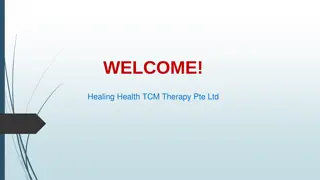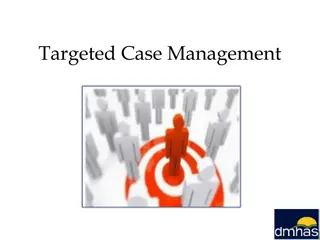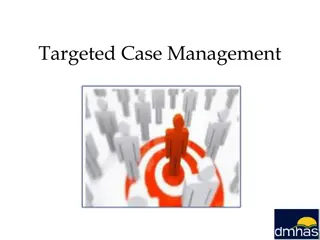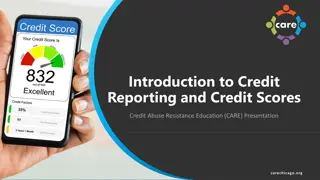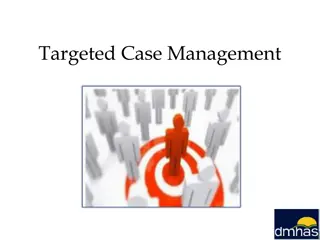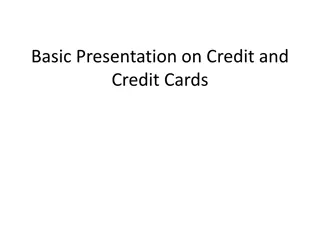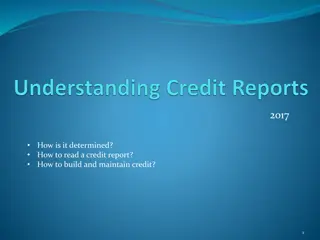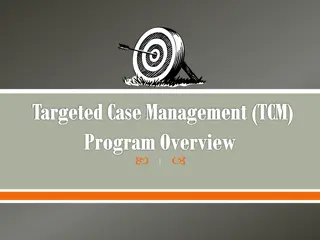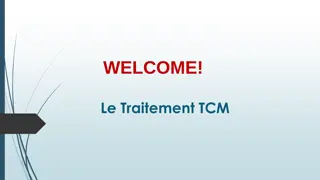
Empower Your Financial Future: Credit Repair Strategies & Tips
Discover effective strategies to address different types of negatives on your credit report and improve your financial well-being. Learn about the importance of credit reports, who accesses them, and why checking your credit is essential for making informed financial decisions.
Download Presentation

Please find below an Image/Link to download the presentation.
The content on the website is provided AS IS for your information and personal use only. It may not be sold, licensed, or shared on other websites without obtaining consent from the author. If you encounter any issues during the download, it is possible that the publisher has removed the file from their server.
You are allowed to download the files provided on this website for personal or commercial use, subject to the condition that they are used lawfully. All files are the property of their respective owners.
The content on the website is provided AS IS for your information and personal use only. It may not be sold, licensed, or shared on other websites without obtaining consent from the author.
E N D
Presentation Transcript
Take Control of Your Money: Credit Repair Shari Bresin Family and Consumer Sciences Agent, Pasco County UF/IFAS Extension An Equal Opportunity Institution
Objectives Increase understanding of the types of negatives on credit report (debt collections, medical collections, auto repossession, eviction, student loan default, etc.) Identify strategies to address each type of negative on a credit report
By addressing negative accounts on your credit, you can: Improve your credit report Increase your credit score Obtain better offers from lenders Increase employment opportunities Possibly better utility bill deposits, car insurance premiums Purpose
Activity 1: Financial Wellbeing Survey https://www.consumerfinance.gov/consumer-tools/financial-well-being/ What is your financial picture like? What actions can you take?
What is a Credit Report? Information compiled by a credit bureau from merchants, utility companies, banks, court records, and creditors about your payment history Easy-to-read summary of your credit accounts and debts The behind the scenes information on your score A report that details your financial behaviors Creditors provide your history/info to the 3 credit reporting agencies Public records also provide information Do you repay debts as agreed? Any late payments? Anything in collections? Etc.
Creditors/Lenders Employers Insurance companies Who sees my credit report? Landlords Utility companies Government agencies (for public assistance eligibility or collecting child support)
Why Check This? So you can see what lenders, landlords, and companies see Gives you an idea on terms and interest rates you ll be offered for big purchases Gives you a chance to catch errors or spot identity theft
How can you access your credit report? All 3 reports can be found on annualcreditreport.com 3 credit bureaus: Equifax Experian TransUnion Your credit report will not show your score View each bureau s report 1x/year (so 3 views for the year) Why look at all 3? Not every debt/account gets reported to all 3 bureaus Note: one free view PER WEEK from all 3 bureaus until April 2022
Turned down for credit in the past 60 days You requested a fraud alert Unemployed and applying for a job within the next 60 days Receiving public assistance You believe your credit report contains fraud Another way to get your credit report Contact the bureaus directly if needing a report based on these reasons Experian.com Equifax.com Transunion.com
Late/missed payments Accounts sent to collections (credit card, medical, student loans, etc.) Delinquency=missing a single payment Default=Continuous missed payment Charge-offs Types of Negative Information (Equifax.com) Accounts not being paid as agreed Bankruptcy Repossessions Short sales or deed in lieu of foreclosure Unpaid rent/evictions Foreclosures
Charge Offs A charge-off usually happens after you ve been delinquent on a debt for 180 days or six months. It is the credit card issuer's way of taking a loss on the debt. In their accounting documents, they ve written the account off as uncollectible, and they no longer consider the debt as an asset. Creditors can continue collecting on a charge-off until you pay, even though it's been charged off. Many times, moves on to collections
Charge Offs When creditors cancel debts, they are required to report the canceled amount (if it's over $600) to the IRS using Form 1099-C cancellation of debt.2 You'll also receive a copy of the form in the mail, typically around tax time if it applies. You may not have personally encountered this tax situation before, but it's pretty common. The IRS estimates nearly 4 million 1099-C forms will be sent to taxpayers in 2021
Negative information stays on your credit report for 7 years (and chapter 13 bankruptcy) Chapter 7 bankruptcy stays on for 10 years If you brought a delinquent account current, status will change to paid as agreed but negative information will still stay on for 7 years What does this mean for your score? The fresher the negative account, the more it hurts your score The more time that goes by, the less it negatively impacts your score Assessing Your Report: Age Hard inquiries stay on for 2 years When a lender requests a copy of your report Not considered negative, but does impact your score If shopping for a car or house, multiple hard inquiries in a 45-day period counts as 1 inquiry What about positive information? An account in good standing stays on for as long as account is open An account that is closed and paid as agreed stays on for 10 years.
Dont ignore debts or debt collectors If they sue you and the judge rules that you owe, they can garnish your wages or freeze your bank account Look over your budget to discuss a payment plan before calling lenders/debt collectors Can you afford the lump sum? Will they offer a payment plan? What monthly payments can you realistically make? What about settlement? Note: settlement still a negative because not paying as agreed, but not as bad for credit score as delinquency/default Get any agreement in writing and do not give a debt collector electronic access to your bank account Options for Resolution and/or Removal
What if you catch an error? Send a written dispute letter to the credit bureau Credit bureau will double check with the lender on your behalf, where they will verify it, make updates, or delete it About 30-day process They are legally required to investigate the matter and make necessary corrections Can also send a statement letter to credit bureau to explain inaccuracy to be included on credit report (free) If lender says it s correct, contact them directly to discuss discrepancy
Statute of Limitations (debt.org; incharge.org) Different from the 7-year rule on credit reports Point when a debt can no longer be successfully sued May try to scare you and sue anyway Repaying it or signing a payment agreement restarts the time period Depends on debt 5 years: written contracts such as personal loans 4 years: revolving debts Moved? Check with a consumer lawyer
Stays on report for 7 years Will be updated to paid with a zero balance in 1- 2 months Collection agency should notify the credit bureaus Collections If not, contact the bureaus and have proof of payment ready Settlement may have tax implications
Actions similar to collections Settlement may have tax implications From charge-off to paid charge-off and stays for 7 years Doesn t restart if sold to collections Still considered negative but not as negative as an unpaid charge-off Addressing Charge-Offs
Addressing Federal Student Loans
Addressing Private Student Loans Can t garnish your wages or tax returns like with federal student loans Less collection options = higher chance to negotiate lower payment Get any new terms in writing, and make sure it isn t over statute of limitations (date of last activity on account payment, agreement, verbal promise to pay, etc.)
Dont pay medical debt off with a credit card Don t take medical credit card Medical debt will not appear on credit report for 6 months But gets sold to debt collectors before or after 6 months Work on repayment plan with debt collector Only pay if you can afford other high priority debts and bills Addressing Medical Debt
Stays on for 7 years Addressing Evictions Pay off your past-due balance Ask landlord to update status as paid Negatives still there, but paid looks better
Can you pay off balance in full? Repossession If so, offer this if they promise to remove from credit report Check for inaccuracies on dates, balance, terms, account numbers, etc. Can dispute anything wrong to the credit bureau and they may remove it if they verify the inaccuracies (part of FCRA)
Laws To Protect Us (Federal Trade Commission.gov) Law Purpose Equal Credit Opportunity Act Prohibits discrimination in lending on the basis of race, color, religion, national origin, sex, marital status, age, or receipt of public assistance. If rejected, creditor must provide reason within 60 days and give you a free credit report Fair Credit Reporting Act Protects information collected by reporting agencies such as credit bureaus, medical information companies and tenant screening services. Information in a consumer report cannot be provided to anyone who does not have a purpose specified in the Act, and must investigate disputed information within 30 days; negative info is removed after 7 years; allows access on annualcreditreport.com Fair Debt Collection Practices Act To eliminate abusive debt collection practices by debt collectors (can only call at certain times, can t threaten or lie, must stop contacting if you write a cease letter, etc.); only applies to third party collectors Truth in Lending Act Requires written disclosures concerning finance charges and related aspects of credit transactions (including disclosing APR) are included, and requires advertisements to include certain disclosures. Credit Repair Organizations Act Prohibits untrue or misleading representations and requires certain affirmative disclosures in the offering or sale of "credit repair" services. The Act bars companies offering credit repair services from demanding advance payment, requires that credit repair contracts be in writing, and gives consumers certain contract cancellation rights.
Resolve Negatives: Use CFPB Letters Consumer Financial Protection Bureau www.CFPB.gov https://www.consumerfinance.gov/consumer- tools/credit-reports-and-scores/sample-letters- dispute-credit-report-information/
Sample of Experian Credit Report https://stcroix.extension.wisc.edu/files/2012/10/2012-Fall-sample- credit-report.pdf
Case Studies Your examples Any questions?






